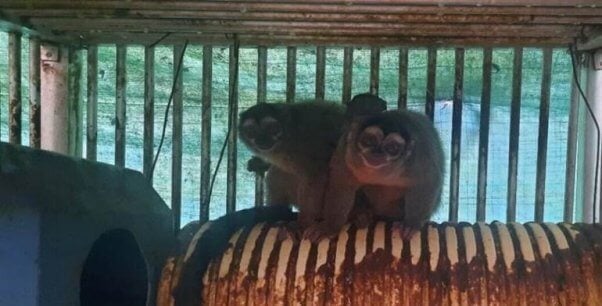Reps. Nehls and Titus Reintroduce Landmark Bill to Ban NIH Funding of Cruel Foreign Animal Experiments
For Immediate Release:
February 6, 2025
Contact:
Tasgola Bruner 202-483-7382
Today, Representatives Troy Nehls (R-Texas-22) and Dina Titus (D-Nev.-01) reintroduced the Cease Animal Research Grants Overseas (CARGO) Act, a bipartisan bill aimed at halting the National Institutes of Health (NIH) from funding foreign laboratories that conduct experiments on animals using U.S. taxpayer dollars. Reps. Eleanor Holmes Norton (D-DC), Young Kim (R-Calif.-40), Brian Fitzpatrick (R-Pa.-01), Don Davis (D-N.C.-01), and Nicole Malliotakis (R-N.Y.-11) have cosponsored the CARGO Act.
Between 2011 and 2021, the NIH awarded over $2.2 billion in taxpayer-funded grants to foreign laboratories in regions including South America, Europe, Asia, and Canada. These funds were allocated to support animal experiments that lack accountability and adequate oversight, resulting in animal abuse, fraud, and research misconduct. NIH currently has no effective mechanisms to ensure compliance with basic animal welfare standards in these foreign labs and does not verify the claims made in grant applications or progress reports.
The CARGO Act seeks to stop these unethical practices, saving countless animals from cruel experiments and redirecting funds toward more effective, humane, and human-relevant research methods. By eliminating these foreign grants, the bill also aims to save American taxpayers billions of dollars that are currently being wasted.
“There is no justification for continuing to send American taxpayers’ hard-earned money overseas to fund cruel experiments on animals that do not contribute to advancing public health in our country,” says Rep. Nehls. “I am proud to reintroduce the CARGO Act, sending a clear message that we will not tolerate wasteful spending or animal abuse.”
“The CARGO Act is a critical step in ending animal suffering and redirecting resources to more reliable and humane research methods, says Rep. Titus. “The scientific community recognizes this as the smarter, more effective approach to biomedical research, and I encourage my colleagues to support this vital bill.”
“Billions of dollars are being funneled into cruel and ineffective experiments in foreign laboratories, with little to no accountability or oversight—meanwhile, American taxpayers are footing the bill for this neglect,” says PETA Senior Vice President Kathy Guillermo. “We thank Representatives Nehls and Titus for their leadership in sponsoring the CARGO Act, which will save both animals’ lives and taxpayer dollars. We urge everyone to contact their representatives and ask them to support this commonsense legislation.”
The renewed push follows a disturbing PETA investigation that uncovered the NIH’s continued funding of the Caucaseco Scientific Research Center, a discredited Colombian laboratory. Despite the lab’s history of violating animal care standards, including confining monkeys in squalid conditions and neglecting them to the point of death from infected wounds, NIH was found to have encouraged additional funding for this facility.
The investigation revealed further horrors, including the forced cannibalism of stressed and starving mice. PETA’s efforts led to the rescue of 108 monkeys and 180 mice, as well as the retraction of a research paper connected to the lab, and expressions of concerns on four other research papers, including one co-authored by an NIH official.
The Caucaseco Scientific Research Center had received over $17 million in NIH taxpayer-funded grants.

Monkeys kept in filthy, makeshift cages at the Caucaseco Scientific Research Center, which received millions of dollars in American tax money. Image obtained through public records law by PETA.
PETA—whose motto reads, in part, that “animals are not ours to experiment on”—points out that Every Animal Is Someone and offers free Empathy Kits for people who need a lesson in kindness. For more information, please visit PETA.org or follow PETA on X, Facebook, or Instagram.
Note: PETA supports animal rights, opposes all forms of animal exploitation, and educates the public on those issues. PETA does not directly or indirectly participate or intervene in any political campaign on behalf of or in opposition to any candidate for public office or any political party.


